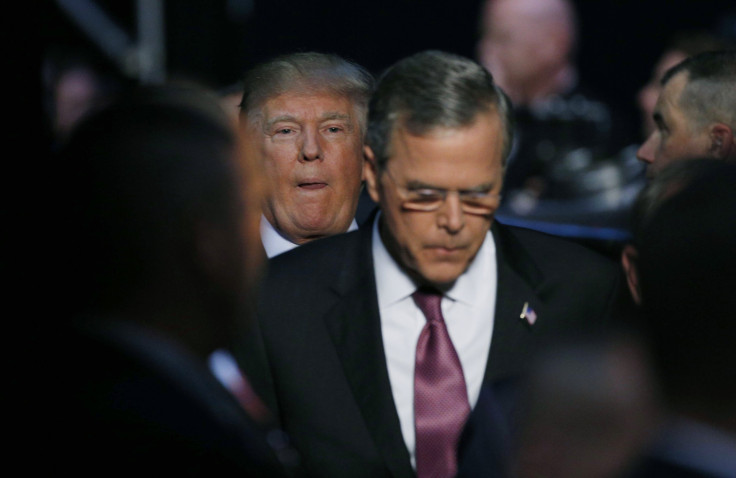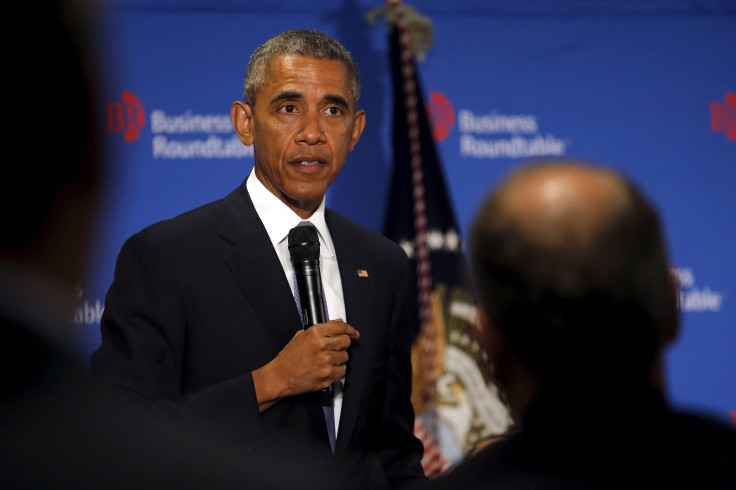Election 2016: Carried Interest Tax Rates And What Republican Presidential Candidates Think Of Them

Hours before the second Republican primary debate was set to start, U.S. President Barack Obama restated his interest in a tax rate repeal that has garnered some rare and interesting bipartisan support. He told a room filled with American CEOs that the United States should abolish the carried interest tax loophole, which allows hedge fund managers and private equity investors to pay lower taxes on certain income than average wage earners.
Talking about carried interest is nothing new for Obama, whose 2012 presidential prospects were bolstered by the revelation that his very wealthy opponent, Mitt Romney, had benefited from the carried interest tax cut enormously. What is new, however, is that the president has found himself agreeing with two of the top-tier Republican presidential candidates hoping to take his job. Party front-runner and billionaire Donald Trump has been critical of the tax rule, and more recently, so has former Florida Gov. Jeb Bush.
"The hedge fund guys are getting away with murder," Trump said in August. "They're paying nothing, and it's ridiculous. I want to save the middle class. The hedge fund guys didn't build this country. These are guys that shift paper around, and they get lucky."
Sign @TheP2Agenda Petition to Close the #CarriedInterest Tax Loophole Nowl! http://t.co/LzPXkNnAAf @RBR2016 @CAFalk pic.twitter.com/V0taW4GiYy
— Daniel Buk (@DanBuk4) September 13, 2015
The president mentioned those two candidates during his Wednesday address. While the three may not agree on everything, he said, there was some common ground in this issue.
"People in both parties, including some of the leading Republican candidates for president, have been putting out proposals," Obama said. "You have two leading candidates on the Republican side that say we should” repeal the tax loop hole, he said.

The carried interest tax rate benefits hedge fund managers and private equity investors by nearly halving the tax rate on long-term investments, compared with the tax rate on normal wages. The idea behind the broader principle of capital gains tax breaks is that long-term investment in high-risk ventures like starting a small business should be encouraged. Critics of the rule, however, argue that hedge fund managers who benefit from the breaks often are using funds that belong to other people, who are effectively just doing their jobs, and that those earnings should be taxed in the same way those people get taxed.
Jeb Bush last week released his tax plan, which included several traditional Republican talking points. In the plan, Bush also took the rare Republican step of advocating for taking away the loophole that rich hedge fund managers -- the types of people who have helped fill Bush's campaign coffers and bankroll his super PAC -- through a repeal of the carried interest loophole.
How do the other Republican White House hopefuls feel about the issue? Many of the candidates, including Florida Sen. Marco Rubio, former Hewlett Packard CEO Carly Fiorina and Wisconsin Gov. Scott Walker, haven't staked out positions yet. However, it is worth noting that presidential campaigns are expensive affairs. And while Bush and Trump are pretty secure with the amount of money they've raised, or just have in the bank, the rest of the field isn't quite as flush with cash. Many candidates on both sides of the political divide often rely on campaign contributions from the wealthy individuals in the financial services industry who benefit from the tax rules that Trump and Bush have openly condemned.
.@ScottElliotG explains why the carried interest debate is mostly overblown: http://t.co/nJmTiA0mx4 pic.twitter.com/l54dZKBFrq
— Tax Foundation (@taxfoundation) September 9, 2015Follow me on Twitter: @ClarkMindock
© Copyright IBTimes 2024. All rights reserved.






















